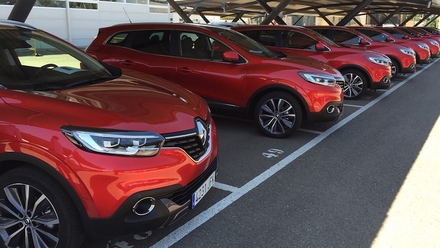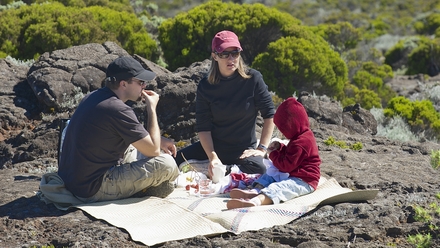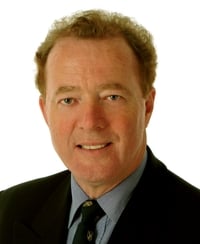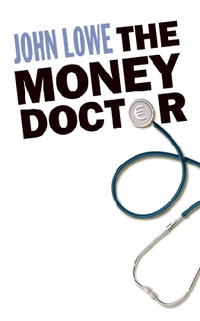If you’re amongst them or are continually trying to make ends meet, here are five simple tips from RTÉ LifeStyle’s Money Doctor to put you back on the road to financial fitness and health:
1. Plan it: The first thing to do is create a household budget – working out exactly what you are spending each month and from this, determining initially how much disposable and/or surplus income you have after tax, rent/mortgage, household bills, food, petrol and ‘spending money’. If your expenditure exceeds income, you then have two choices – cut costs or earn more. Remember, ask yourself do you really need to buy that product or service and if you do, is there a cheaper or better alternative? We need now more than ever before to ensure we are getting the best value for our hard earned and scarce money.
2. Cut down your banking and insurance bills: Overdrafts and especially those exceeding the limits should be a big No-No. Arrangement fees, high interest rates, referral fees, surcharges (additional interest for exceeding overdraft limits – can be another 12% pa) and unpaid fees all take their toll on your disposable income. Credit card costs are similar – try and use it like a charge card and pay off when payment is due. But be wary of taking out cash through them – they can charge up to a whopping 26% from the time you withdraw!
 A lot of people shop for better car insurance but you should also shop around for the best life, health, home and travel insurance plus mortgage and loan deals. They should all be compared with the best on the market and if you don’t have the time, you could still save money and time by going through an independent authorised adviser.
A lot of people shop for better car insurance but you should also shop around for the best life, health, home and travel insurance plus mortgage and loan deals. They should all be compared with the best on the market and if you don’t have the time, you could still save money and time by going through an independent authorised adviser.
3. Find the RIGHT savings/deposit accounts: Albert Einstein was accredited as saying Compounding is mankind’s greatest invention as it allows the reliable systematic accumulation of wealth. Many of the top deposit accounts have some minimum and maximum thresholds so you need to do a little research to find out where is the best account for you. The most important decision about savings can be summed up in one word: START. By planning to save, you are setting immediate goals, whether it’s for holidays, that attic conversion, new plasma 3D screen television or Christmas – now is the perfect time to start. So SAVE SMALL BUT SAVE OFTEN – whether it’s in a bank’s Regular Saver account, the post office or your local credit union. Ensure your deposit–taker is regulated – the Central Bank’s Deposit Protection Scheme covers you up to €100,000 per person per institution. Then it is a simple matter of finding the best rate – better in your pocket than theirs.
Best regular saver accounts currently? If you save between €100 per month and €1,000 for 12 months, you will receive 3.5% interest from KBC Bank (4.5% if you open a current account with them) while Nationwide UK offer 4% for 15 months saving. Credit unions and the post office should not be forgotten either. Best demand account is Rabodirect’s 1.5% (up to €20K) and KBC Bank’s smart access account 1.25% (over €20K and up to €100K)
4. Cut down your household utility, leisure and travel bills: When you take a close look at your household bills, you will find you may have left the lights on for too long, or not used the washing machine on the night-time rate or had the central heating blazing while you were away for the weekend. Buy discounted bus passes, use www.tolltag.ie, and a bicycle – over time, not only is it cheaper but better for you physically. Another tip is to check out the Last Minute type holidays - check out the latest travel news on RTÉ Travel www.rte.ie/lifestyle/travel. You will find many ways to reduce those overheads. Adhere to the Money Doctor mantra – STOP SPENDING, AND IF YOU MUST, ENSURE BEST VALUE.

5. Don’t be embarrassed… there’s no shame in cutting back to save money!
a. Take advantage of special in-store offers – and read the junk mail coming through your letterbox from the various retailers, there are often great little deals in there.
b. Use coupons and discount vouchers.
c. Go online and use discount web sites – Grabone.ie, Dealrush.ie, Groupon and donedeal.ie to name but a few.
d. Have family-fun for free! Bring the gang to the library, art galleries, museums, parks – all for free!
e. Generic and bulk buying: - When offers are on, stock up especially nappies and baby food
f. Clothes: Get swapping! Nothing to wear and sick of something that’s been hanging in your wardrobe for a long time? Think about swap-shops or trading-parties with friends. Children’s hand-me-downs have enjoyed a mega comeback in recent years, with many items being one by three or four kiddies before heading for the charity shop. For longer wear items, such as the winter coats, it’s better to go for good quality items but otherwise, kids grow out of their clothes so quickly, you’ll get away with cheaper outfits for day-to-day. Plus most only need ‘play clothes’ for during the week and the cheaper the better so you don’t care if they come home covered in paint, muck or worse!

g. Food: Portion control is something that will save money in the long term. One of the government portion control healthy guidelines for example is that the portion for mash or rice should be the size of a computer mouse while cheese should be a golf ball size and vegetables taking over half your plate!
h. Water is free and far better for your children and you than any soft drink alternative – and tap water at that.
 And the one word to get your saving habit off the ground? START!
And the one word to get your saving habit off the ground? START!
John Lowe is Founder and Managing Director of Providence Finance Services Limited trading as Money Doctor, regulated by the Central Bank and based in Stillorgan Co Dublin. He is author of The Money Doctor 2015 (Gill & Macmillan). For consultations and corporate seminars, call (01) 278 5555 or email jlowe@moneydoctor.ie Follow John on Twitter (@themoneydoc) or here on Linkedin


